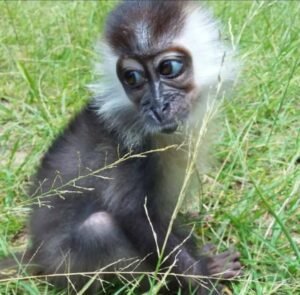Spread the love
By Taiye Olayemi
Prof. Edem Eniang, Executive Director, Biodiversity Preservation Centre in Uyo, has expressed disappointment at continued engagement of some Nigerians in tree felling and wildlife killing for commercial purposes.
Eniang told the News Agency of Nigeria (NAN) in Lagos on Tuesday that in spite of warnings, some Nigerians had continued in the acts, making the effects of climate change to be worse.
According to him, trees serve as physical barriers capable of reducing wind speed and redirecting its force.
” Thereby helping to prevent soil erosion, which can damage crops and destroy wildlife habitats.”
He added that trees could reduce the likelihood of damage to buildings and other structures by strong winds.
He said that wildlife species being killed were capable of attracting eco-tourism traffic to the nation and aid in generating foreign exchange earnings.
He advised Nigerians to refrain from the acts and rather engage in tree planting and general biodiversity conservation.
“In Nigeria, the challenge of endangered species conservation has become a matter of urgent concern requiring positive actions from governments at all levels and all individuals.
” We must all work together to address this situation for a better future, balanced ecosystem, and to achieve the Sustainable Development Goals in our country by 2050.
” We have disregarded, disrupted and altered the planetary boundaries within our spheres of influence, allowing our daily activities as humans to have a negative impact on the environment or ecosystems.

“Acid rain is now a reality; our water is acidified, and if we do not take action, 2025 will bring even worse consequences with increased temperatures and more severe wind disasters.
“Currently, the only opportunity we have to view our wildlife species is presented by those sold at the bushmeat markets, whereas those are the same species that could have drawn eco-tourism traffic and bring in the much-needed foreign exchange.
“Unfortunately, they are, on daily basis, displayed at wildlife markets or at pepper soup joints, where they are being sold indiscriminately.
“We are cooking crocodiles, antelopes, gorillas, chimpanzees, dolphins, African manatees and more. This is unacceptable,” he said.
Eniang said that, to safeguard Nigeria’s endangered wildlife species, the Federal Government should consistently educate Nigerians about the dangers of killing them.
He said that due to reckless killing of some wildlife species, animals such as Forest elephants, Atlantic humpback dolphins, African manatees, red-capped mangabeys, colobine monkeys and pangolins were on the verge of extinction.
“ also species such as the Ukpam stingray, snakefish, two-headed snake (Calabar ground python), Angwantibo, Nigerian-Cameroonian chimpanzee, Cross River gorilla and the Slater’s monkey, declared in 2000 as the 15th most important monkey on the planet, are all on the brink of extinction.
“ Cheetahs, Giraffs and hunting dogs have disappeared from Nigeria.
“Since the removal of fuel subsidy by the Federal Government, many Nigerians cannot afford the cost of PMS, diesel and kerosine; so, they have embraced firewood to cook.
“This development has increased the rate at which trees are brought down and converted to charcoal. Nigerians must desist from it,” he said.
Eniang urged Nigerians to make conscious efforts in the preservation of Nigeria’s fauna and flora endowments for wealth creation and environmental preservation. (NAN) (nannews.ng)
Edited by Ijeoma Popoola
